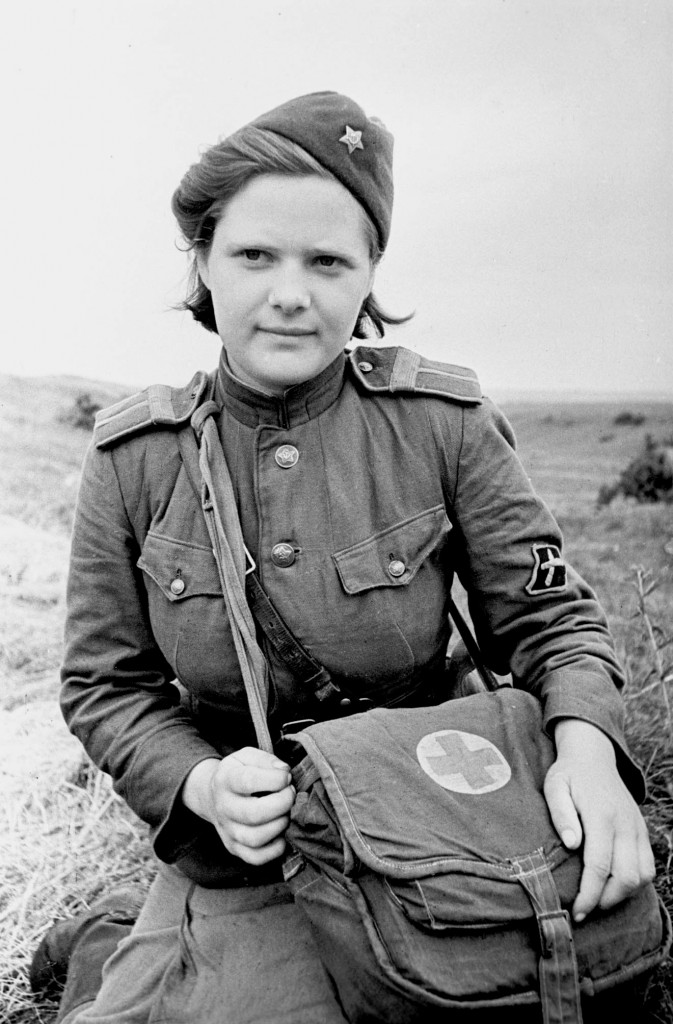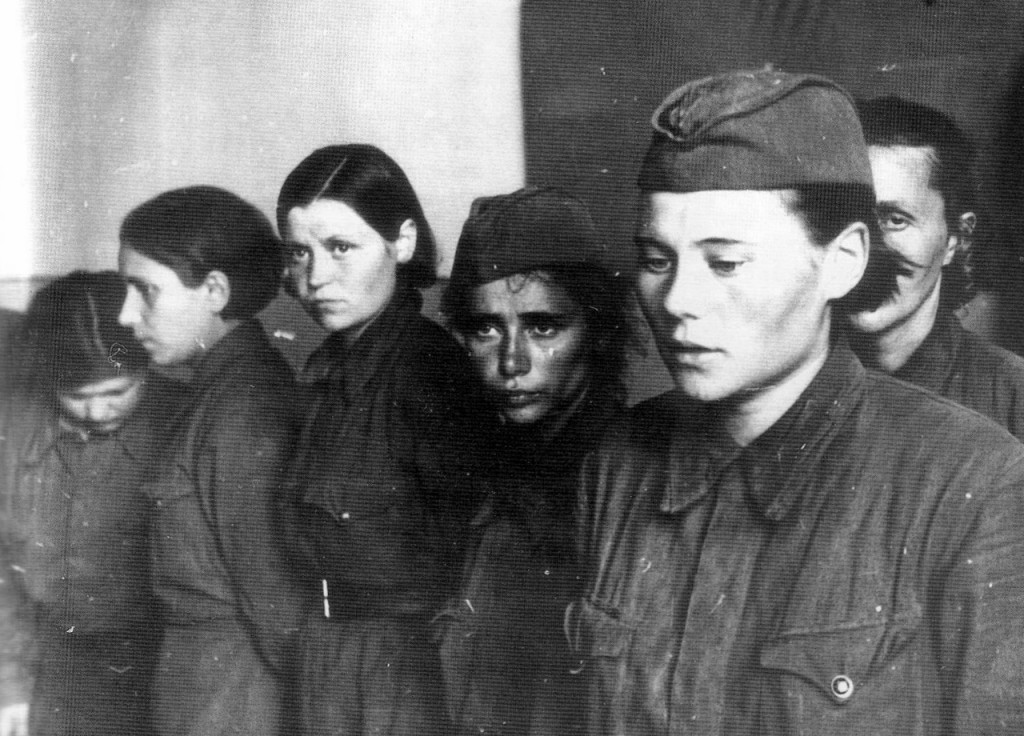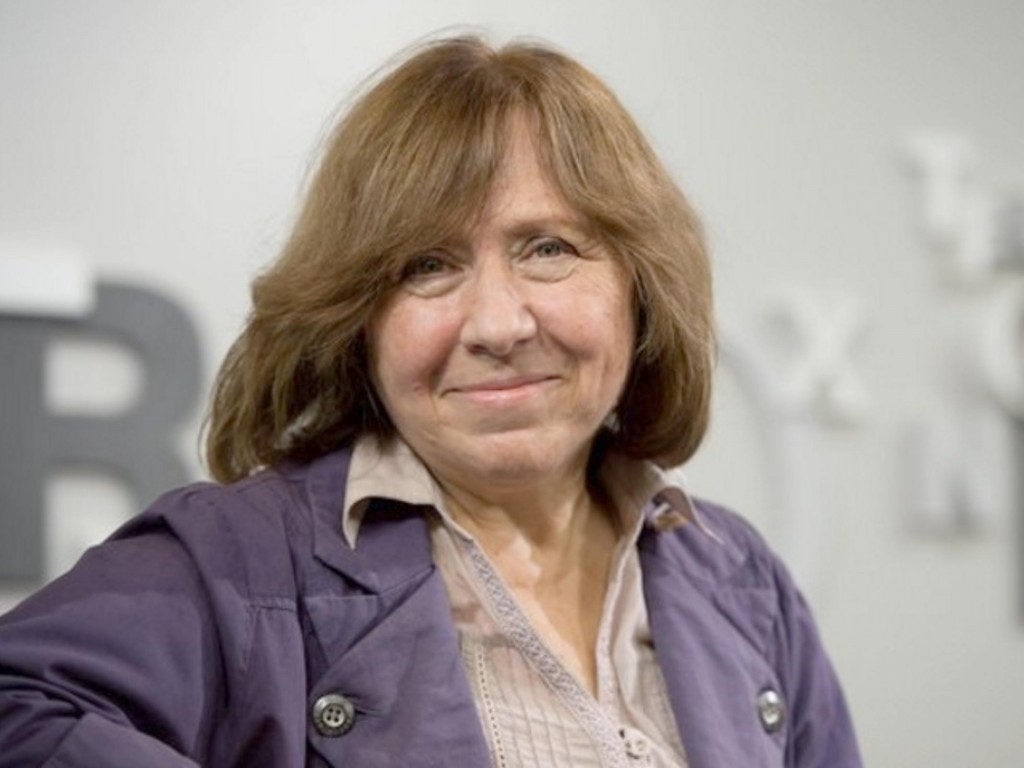News that the 2015 Nobel Prize in Literature was awarded to writer and journalist Svetlana Alexievich set off a very stormy reaction in Russia, full of controversy. Such reaction is not surprising, as almost all facts about Alexievich are controversial in some way.
Svetlana is an ethnic Belorussian, who was born in Ukraine, educated in Belorussia, writes in Russian and after years of living in Belorussia now lives in Germany. Her books are nonfiction. And they are even less “fictional” then most of nonfiction, because a reader rarely can find words written by the writer herself in most of her books.
Her books are skillfully pieced together fragments of thousands of interviews that in combination give striking picture of the events reflected in each book.
Here is how Svetlana Alexievich introduces herself in her web site:
“I’ve been searching for a genre that would be most adequate to my vision of the world to convey how my ear hears and my eyes see life. I tried this and that and finally I chose a genre where human voices speak for themselves. Real people speak in my books about the main events of the age…”
Here is the list of her main books:
“The Unwomanly Face of the War” – about women in Russian Army in WWII.
“The Last Witnesses: the Book of Unchildlike Stories” – about children in the WWII.
“Zinky Boys” – about the ten-year Soviet-Afghan war.
“The Chernobyl Prayer: Chronicles of the Future” – about the Chernobyl disaster and living in a different world after the event.
“ The Wonderful Deer of the Eternal Hunt. “ – a book that includes a hundred male and female stories about people’s desire and failure to find happiness.
“The Second Hand Time” – addresses the issue of the impact of history of a country on the minds of its citizens, in particular the formation of the phenomenon of ‘Soviet Man’ ”
American media well covered the awarding of Svetlana Alexievich with Nobel Prize. A good example is a New York Times article:
I’d like to add to this coverage some information about Russian and Belorussian reaction to the event.
As a journalist Svetlana Alexievich is one of the most active critics of the Belorussian President Lukashenko. Nevertheless Lukashenko found it wise to congratulate the citizen of his country upon receiving one of the most prestigious world awards.
Alexievich has on many occasions openly criticized Russian President Vladimir Putin’s politics, especially annexation of Crimea and the war in Ukraine.
Russian authorities in general positively reacted to her award, but Putin’s press representative found it necessary to explain to Russian people that Alexievich’s criticism of Russian involvement in Ukraine is the result of writer’s lack of information about the real state of things.
Most of representatives of democratic opposition praise awarding Svetlana Alexievich.
But most of representatives of the nationalistic and leftist segments of the Russian society are enraged by the decision of the Nobel Prize Committee, which they consider a kind of mouthpiece for the West. The most typical are the comments of Zakhar Prilepin, one of the most popular young Russian writers with the communistic-nationalistic political orientation. He claims that when Russia is weak, it is ignored by the West, and no Russian gets prizes for literature. But when Russia becomes strong, the Nobel Prize is usually given to the most anti–patriotic Russian writer.
Prilepin writes:
“One should understand: this award is the result of an enormous humiliation, which West feels as a result of new Russian achievements. First there was the Olympics, then the Crimea, then the fact of isolating Donbas from Ukraine. Now it’s Syria. Missiles, which are flying from the Caspian Sea, reached their target in the proper place. The West had no choice but responding somehow. And they’ve chosen most ridiculous response, the most wretched option: to award a good journalist who is most famous with her surprisingly banal interviews always ending with the refrain: ‘Russia has killed everybody, killed, killed, always had been killing… Stalin, Russian priests, all of them kill! One knows what expect from Russia, and I know best!’”
This year is 70th Anniversary of the end of WWII, which has been widely celebrated in Russia. This celebration brought about the appearance of fragments of the Alexievich’s book about Russian women in WWII at many Russian web sites. Reading these fragments was one of my most emotional experiences of the year. I was very sorry that I couldn’t share with my American friends my feelings triggered by the reading. Now, using the occasion, I want to present you with my translation of some of the fragments from “The Unwomanly Face of the War”:

Fragment 1: “Our train was moving many days. And such trains were following one after another: all full of girls, singing, waving with their kerchiefs to people outside. It had become clear: there are not enough men in Russia any more, the men are killed or became prisoners of war. Now we, girls, should take their place… My mother wrote me a prayer. I put it in a locket. Maybe it helped – I came back home. I kissed the locket before every battle … ”
 Fragment 2: “Our mother had no sons … And when Stalingrad was besieged, our entire family voluntarily went to the front: mother and five daughters. Our father was already fighting …”
Fragment 2: “Our mother had no sons … And when Stalingrad was besieged, our entire family voluntarily went to the front: mother and five daughters. Our father was already fighting …”
Fragment 3: “We were very young, when we went to the front. Just little girls. I even grew during the war. My mother has measured me before and after … I grew ten centimeters…”
Fragment 4: “Nursing courses were organized, and my father took me and my sister there. I was fifteen years old, and my sister was fourteen. My father said:” This is all that I can give to win. My girls … “
Fragment 5: “Girls rushed to the front voluntarily, only a coward could not go to fight. Nurses were bold, unusual girls. There are statistics: loss among nurses was second only to losses in the infantry battalions. What, for example, it meant to pull a wounded soldier from a field fight? I’ll tell you right now … We would attack Germans, and would be met with machine guns. The entire battalion falls to ground. Not all of the solders killed, many are just wounded. The German machine gun fire is not stopping. And all of a sudden first girl jumps out of our trench, then the second, third … They begin to dress and to drag the wounded right under the fire. Even the Germans for a while were getting numb from amazement. By ten o’clock in the evening all the girls would be seriously injured, and each of them would had saved a maximum of two or three people. They were rewarded sparingly: in the beginning of the war awards were not thrown around. A wounded soldier had to be pulled out of battle along with his personal weapon. The first question a nurse was asked on her return from battle was: where’s the weapons? In the beginning of the war there was not enough weapons. The rifle, machine gun – all that had to be dragged. For saving life of fifteen seriously injured soldiers, pulled from a battlefield along with their personal weapon a nurse was getting the medal “For Service in Battle”; for the salvation of twenty-five – the Order of the Red Star; for forty salvations – the Order of the Red Banner, to saving eighty soldiers – the Order of Lenin. I have described what it meant to save in the battle at least one … From under the bullets … “
 Fragment 6: “I pulled out of the fire a total of four hundred and eighty one wounded. Men who were two to three times heavier than I was. A wounded people are even heavier then healthy ones. Dragging them with theirs weapons, and their overcoats, boots. To take on my shoulders eighty kilograms and to carry! Deliver him and then go back for the next one, and again seventy to eighty kilograms … And so five or six times in one attack. And my weight was just forty-eight kilograms – the weight of a ballet dancer. Today it hard to believe even to myself … “
Fragment 6: “I pulled out of the fire a total of four hundred and eighty one wounded. Men who were two to three times heavier than I was. A wounded people are even heavier then healthy ones. Dragging them with theirs weapons, and their overcoats, boots. To take on my shoulders eighty kilograms and to carry! Deliver him and then go back for the next one, and again seventy to eighty kilograms … And so five or six times in one attack. And my weight was just forty-eight kilograms – the weight of a ballet dancer. Today it hard to believe even to myself … “
Fragment 7: “I came back gray-haired from the war. I was twenty-one years old, and was gray-haired. I had been badly wounded, had concussion, I could not hear in one ear.”
Fragment 8: “As long as he could hear, until the last moment you keep telling him that no, he cannot die, it is impossible. You kiss him, hug him, what else can you do? He’s already dead, his eyes look to the ceiling, and I still keep whispering him something soothing … Their names are erased, gone from my memory long ago, but I still see their faces … ”
Fragment 9: ” One of our nurses was captured by Germans. A day when we recaptured the village, we found her body. Her eyes were gouged out, her breasts cut off … impaled … Her body was white-white from the frost and all her hair were gray. She was nineteen years old. In her backpack, we found letters from home, and a green rubber bird. Children’s toy…
Fragment 10: ” I’ll say something different … For me the worst thing in the war was wearing male underpants. That was horrible… Well, first of all, they were very ugly … You are in a war, going to die for your country, and they find you in those underpants. You look ridiculous. It is absurd. Men wore long and very wide black underwear shorts then…”
Fragment 11: “You are asking about love? I’m not afraid to tell the truth … I was a “battle field wife”. The wife in the war. The second, Illegal wife. My first man was a battalion commander … I did not love him. He was a good man, but I did not love him. And I went to him into his dugout in a few months of the war. What else to do? There were hundreds of men around, so it was better to live with one than to be scared of them all. It was not so scary in a battle, as after the fight, especially at the moments of rest. In a battle, they call you: “Dear Sister! Dear Sister!”, and after every battle they hunt you … You cannot get out of your dugout during the night… I, for example, was an only woman in my battalion and lived in a common dugout together with men. They separated some place for me, but what separation means in a six meters room? I was regularly waking up during a night waving my hands: to hit one’s cheek or an
arm of another. When I was wounded, I was taken to hospital and over there still I was waving hands during the nights.”
 Fragment 12: “When the war was over, they were terribly vulnerable. Let’s take my wife. She is an intelligent woman, and stillshe treated the military girls badly. She believed that they went to war to find men over there. But in fact, most of them were very honest girls. Naive. But after the war… After the mud, after the lice, after death… a man wanted something beautiful. Flashy. Beautiful women… I had a friend who during the war loved a beautiful, as I now understand, girl. Nurse. But he did not marry her. When he was discharged, he found another, a prettier one. And he’s not happy with his wife.”
Fragment 12: “When the war was over, they were terribly vulnerable. Let’s take my wife. She is an intelligent woman, and stillshe treated the military girls badly. She believed that they went to war to find men over there. But in fact, most of them were very honest girls. Naive. But after the war… After the mud, after the lice, after death… a man wanted something beautiful. Flashy. Beautiful women… I had a friend who during the war loved a beautiful, as I now understand, girl. Nurse. But he did not marry her. When he was discharged, he found another, a prettier one. And he’s not happy with his wife.”
Fragment 13: “I had reached Berlin with the army and I had returned to my village with two Orders of Glory and several medals. I have spent three days at home and then, on the fourth day, my mother have waken me in the morning to say: “Daughter, I’ve gathered a bundle for you. Go away… Go … You have two younger sisters growing up. Who will marry them? Everyone knows you had been at the war for four years, with men …
So, please don’t ask me about it. Do not hurt my soul. Please, ask me better about my awards, like the other journalists do…”


